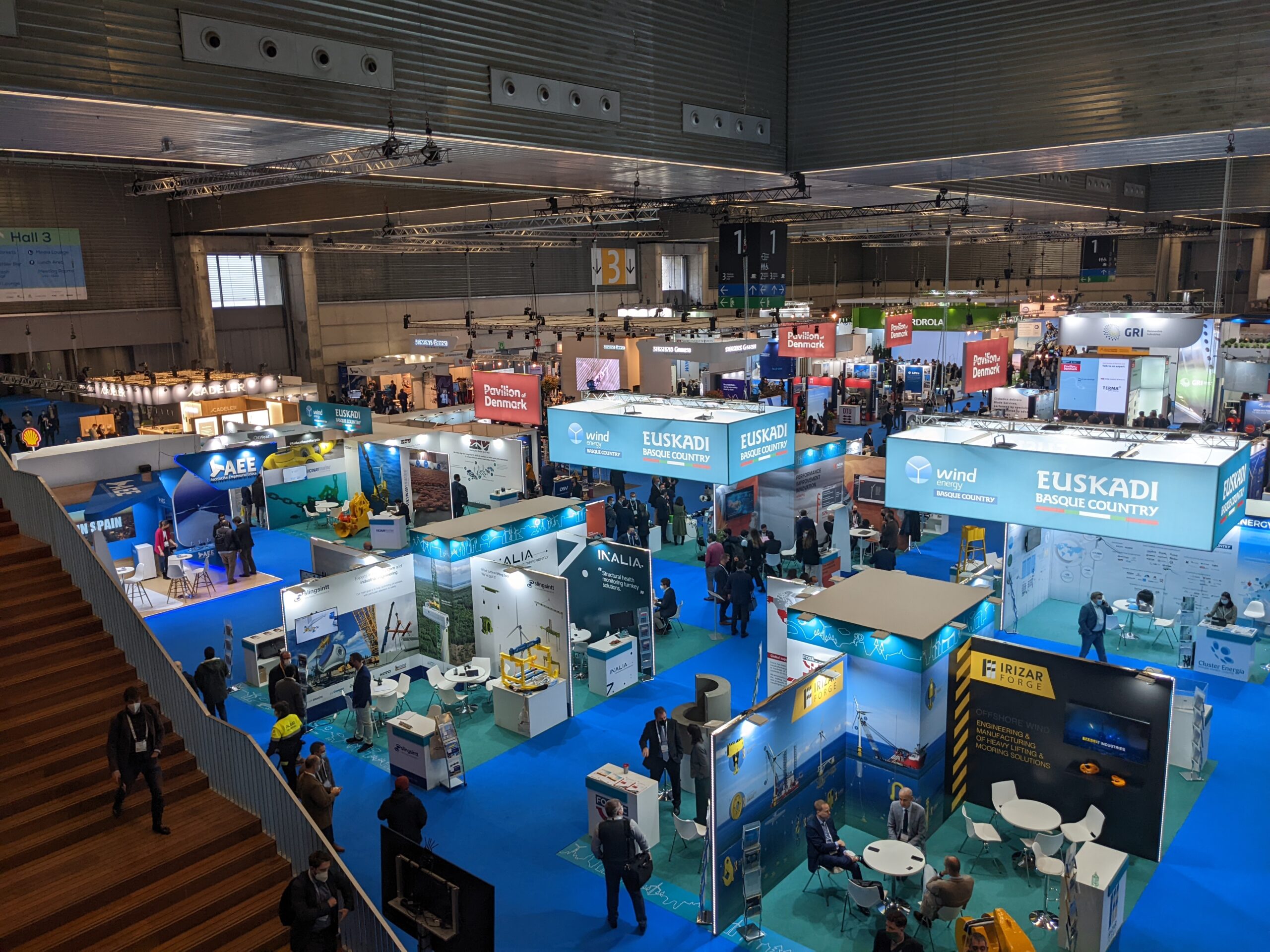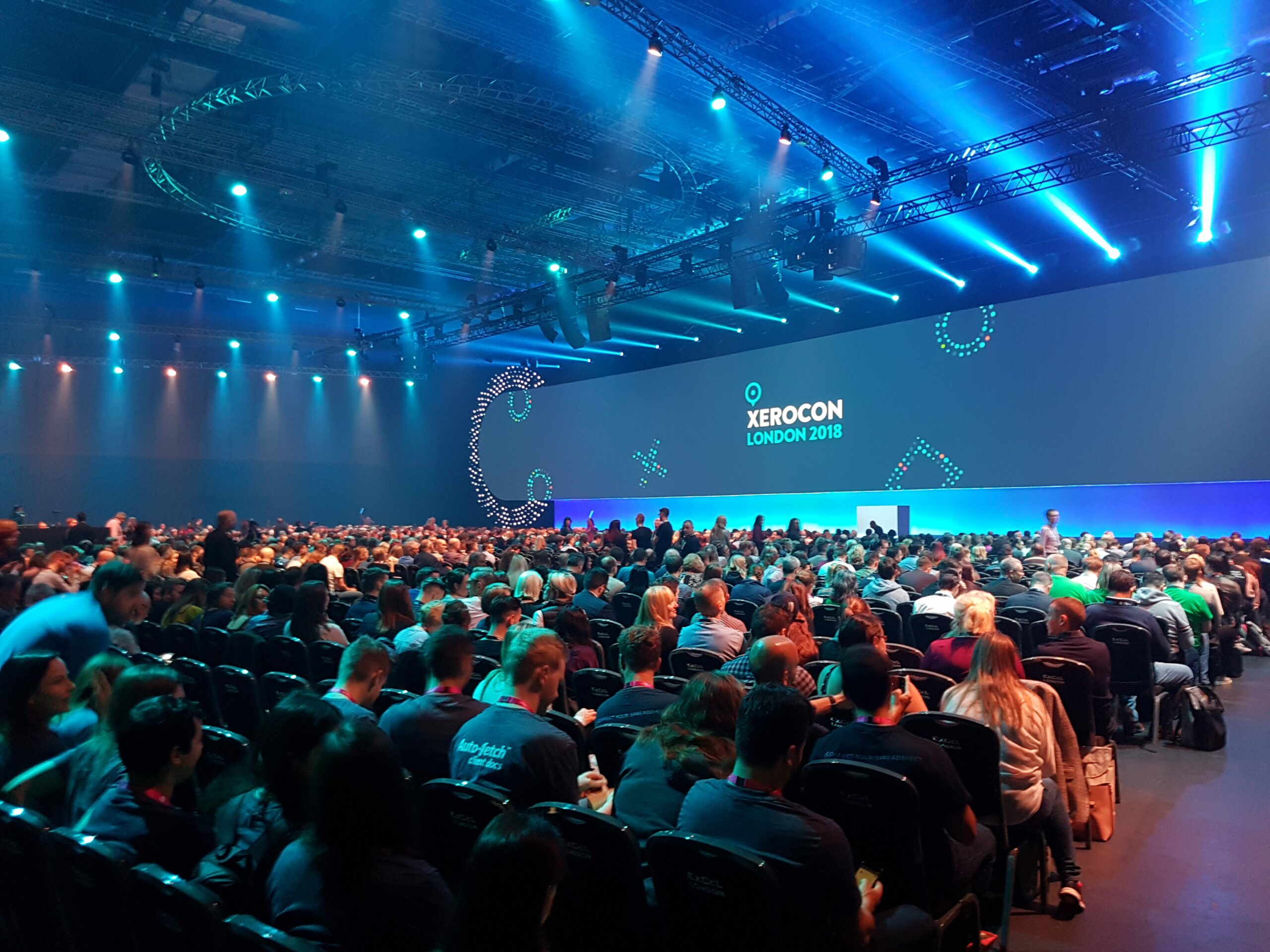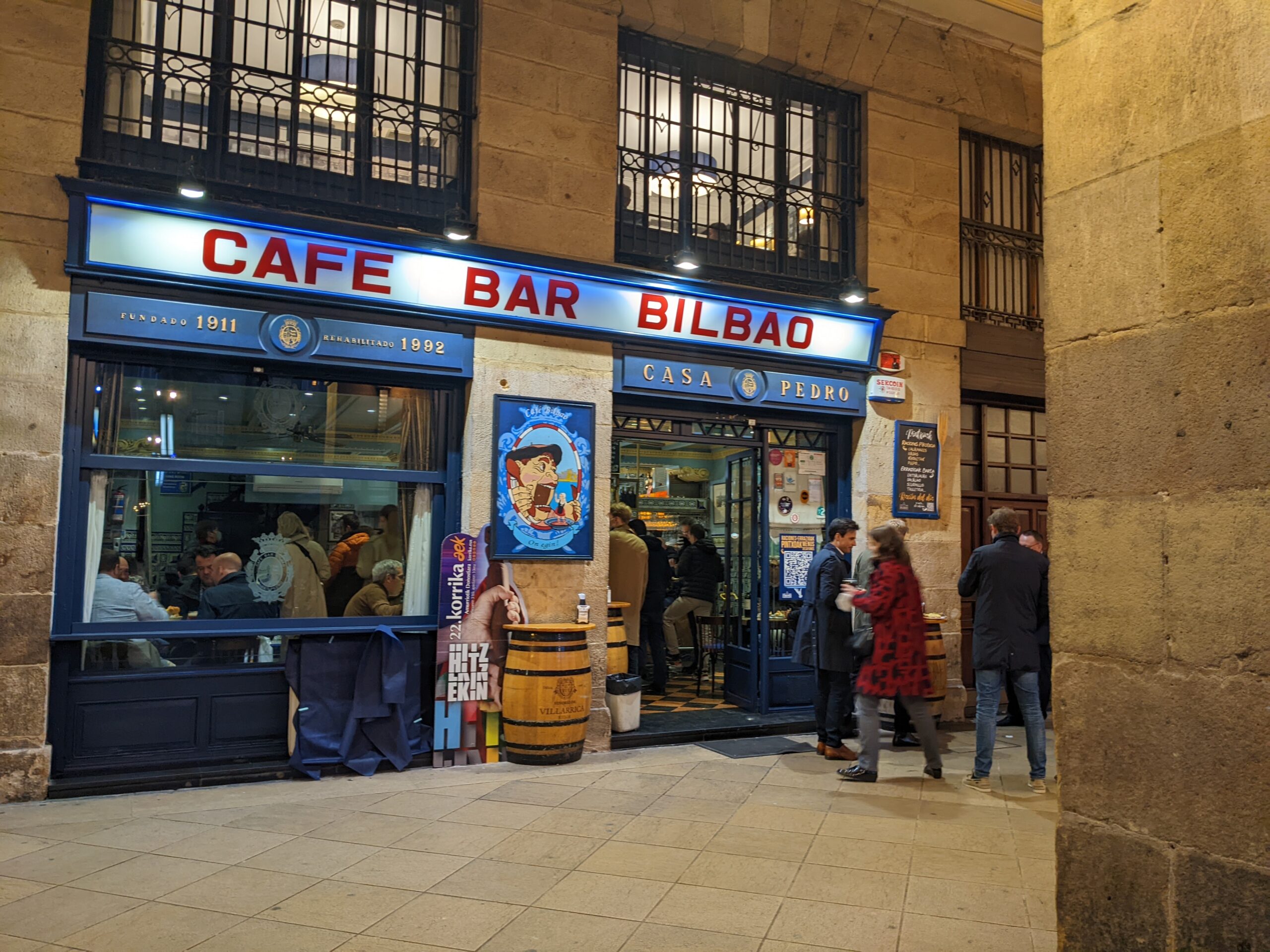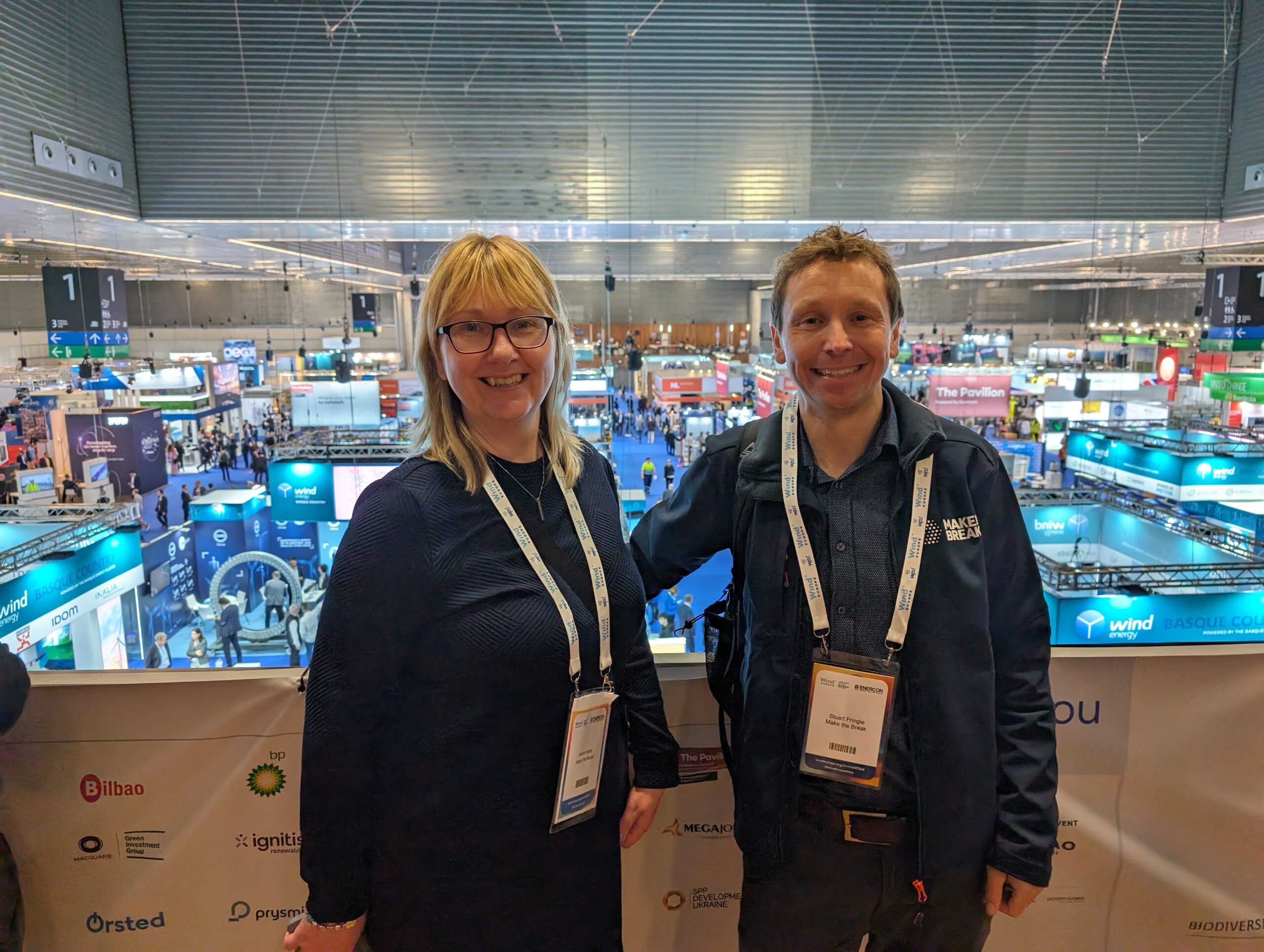
Stu Pringle
Director
Let the games commence
It’s May, and the event season is truly upon us. Forget those early-in-the-year meet-ups that have been and gone in February and March. We are now on to the main course. The big shows are coming thick and fast.
Yes, that’s right, people. Conference, exhibition and trade show season is here.
What is it about conferences?
I’ll be honest with you, I have a bit of a love-hate relationship with the big events. I suspect I am not the only one. I guess it’s personal for me. I spent a fair chunk of my early career ‘in events’ and was the person at the end of the phone selling the shell schemes, pitching for the raised floor upgrade, and letting people know the eye-watering prices for having an extra plug installed. Fun times.
In recent years, I have spent time as both an exhibitor and attendee at many events, large and small, all over Europe. From the wild nights in Barcelona and Munich at marketing conferences to the dreaded trips to the Excel for yet another cloud IT or accounting tech show. Yep, I’ve well and truly earned my event stripes.
For a BD person, events can present an excellent opportunity to get on with the task at hand. A chance to meet more people in two or three days rather than weeks of prospecting.
So it’s all plain sailing, right? Well, we all know that’s not the case. From the steely 1,000-yard stares of the marketing manager who does not want that chat, to the desparado looks of the junior reps trying to grab your attention at 3:30 pm on day three … the big shows can come with big traps.

Making an entrance
Here’s a 14-step guide to being a BD legend at industry events.
After many years in the game, here are my thoughts on how to tackle the big shows. And, spoiler alert, the process should start weeks before the event itself.
1. Set a goal
Fail to plan, plan to fail. The total opportunity cost of deciding to go to one of the big exhibitions is significant. It’s not just the ticket price, it is your time, travel, accommodation, Greggs sausage rolls … it all adds up.
When deciding if you should attend, set out what the goal is. And that can be made up of multiple elements – meet a prospect, catch up with a current client, sit in on the innovation session to hear the trends etc. It is sanity to have this communicated so the team know why you are out and about quaffing croissants in Marseille … oh and working really really hard, obvs.
2. Do your prep
Closely linked to point one above. It would be total madness to set off and do a week of prospecting without a plan, so why should an event be any different?
Check what brands are sponsoring
Check what brands are exhibiting
Check what top targets are speaking
If you can, get a hold of the delegate list and actually go through it line by line to pick out who is from your top-tier target accounts. In some sectors, particularly Renewables, this list is available either through the web or the delegate app. This is a total gimme. Spend the time to find out who is going to be there and pull a list together.
Oh side point, never ever, ever message through the event app. Be honest, do you read your messages there? Exactly…
3. Write down a plan – who like to meet, sessions like to hear, stands like to visit
Once the prep is done, I am a fan of going old-school at events (more on this below). I like to write down a plan. Each day of the event gets its own page in my notebook, and I put the sessions, people and stands I want to visit with time stamps in chronological order. Then, I tick off progress as I go. I reward myself with an overpriced doughnut and a slightly unwelcomed fourth coffee before lunch. Happy days.
4. Secure the budget and book travel early
The event is known about months in advance. You know you are going. Get on with sorting out the travel. At the really big shows the difference in cost between booking 4 or 5 months out vs 4 or 5 weeks out is substantial. As someone who is now running my own business and taking team members out and about, these costs can be brutal. And if you are in a big corporate then stick in your OKRs that you’ve saved some cash by being well-behaved on the travel front.
5. Find out which of your work pals are going
Yes conferences are about work. But when you are away from home for the best part of the week, it’s nice to see some friendly faces. Have some time with industry colleagues that you know you can relax around. Of course, there is a balance here, the task is not to spend all the time having these kinds of chats but c’mon – we are all human, good to have some back up. Dinner on day three with some friendly faces can be just what’s needed in the middle of it all.

3,000 people packed into a room, all to hear from a man called Gary
Are you nodding along while reading this?
6. Get there early-ish on day one
Controversial one this? I’d rather get early and get going. Everyone is fresh and on it. Often the big queue comes a little later in the morning so it can pay to be there early doors. As a side point, if you can get away without having to queue for bags/coats then that’s a win too.
7. Kicking it old school – notebook and business cards
I mentioned old school earlier. I operate a pretty much paperless business (life!) but my one exception is events. I meant it above when I said write the running order down in a notebook. I also keep a record of who I have spoken to on each day and what my follow up should be. I’ve developed this kind of pseudo short hand in my notes so I know if it is someone just to send a LinkedIn connection to or if they are a potential follow up with properly afterwards. I also keep a note of who I spoke to and who I just pinched their business card off the stand – that’s quite a key one btw.
I’ve tried digital NFC business cards and using the QR code on LinkedIn. While they both work, the problem I find is I cannot remember who has been added. With a business card, that doesn’t happen. Build up the pile like a badge of honour.
One more thing. I always try to bring my own water bottle. While things have got better, the amount of single use plastic in exhibition halls is not cool at all.
8. Keep to the plan
Events are big and noisy. It is easy to get distracted. Try as much as you can to keep to your plan and speak to the people who you are looking for. Don’t hit the bar too early (see below)
9. Turn your badge face out
Are event badges and buttered toast related? Because for some reason they seem to default to twisting round and not being visible. Buck the trend, show of your name and company loud and proud. You never know, you might even start a movement.
10. Bring your own lanyard
This one is for the pro’s. I have so much love for people who ditch the event lanyard and bring their own branded one in its place. I see you, I like what you are doing, I respect your hustle. *Fist bump*

An oasis amongst the madness
11. Don’t be a d!ck
This is quite far down the list but it is a biggie. Here’s the thing, exhibitors have paid thousands and thousands to be there. Be respectful. They possibly do not want to be pitched by you, on their stand, 90 minutes into day one. Ask if if’s ok to have the conversation. If not, it can happen another time. And please, please, please, if there is a genuine lead hovering in your three-quarter vision, step out of the way and let that conversation happen first. Everyone will thank you for it.
12. Don’t get (too) drunk
Maybe I’m getting older and not with the cool crew these days, or perhaps times have changed. In the ‘old days, ’ drinking at events was wild. I do not mean to start a whole alcohol debate here, but I will say this: no one likes your boozy rubbish chat at the 7 p.m. stand drinks, and absolutely no one likes your hungover coffee breath on the morning of day two.
Of course, having some ‘off the record’ drinks with your work pals is fun, but remember, it is still work.
13. Be kind to yourself
Events are gruelling. Multi-day conferences abroad, especially so. You wouldn’t put in a 4 day non-stop shift in a normal week, so why try to at event week? Take some time out, time away from the whole noise of it all. We all have our own thing. I’ve got quite into my early morning runs, plodding around the city centre parks of Europe. I also like to quietly escape one evening mid-week and just do nothing.
I find event week exhausting. I hate getting event flu afterwards. I am no longer in my 20’s (or 30’s) and know that back to back 3 am’s is not a good idea. Really.
14. Follow up, follow up and don’t forget to follow up
And finally. A bit like content marketing, with BD and events 90% done is 0% done. If you don’t come good on those conversations and make the follow up, then it is all in vain. All that effort, all that time, all that expense, all those sore feet … for nothing. Don’t let that happen.
See you at the shows
Stu

Team MtB representing

Book now to give your business a health check
Our health check will shine a torch around the inside of your sales and marketing set up.
We will identify frictions and highlight what support would help.
